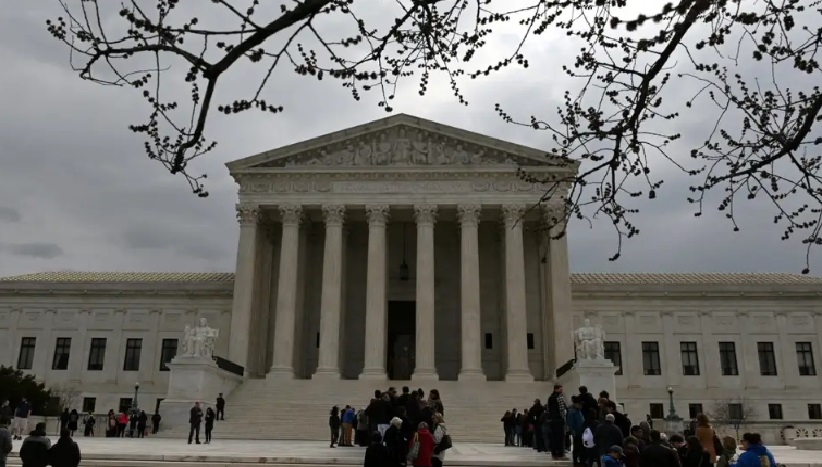- March 19, 2019
- No Comment
- 195
Supreme Court allowed immigrant detention to Trump Administration

The U.S Supreme Court has presented a major victory to the U.S President Donald Trump and endorsed authority of the U.S government to detain immigrants waiting to be deported at any time, even years after they have completed prison terms for criminal convictions. The 5-4 ruling saw the court’s conservative justices overcoming liberal dissent and essentially allowed U.S immigration enforcement to detain such immigrants indefinitely and at any time. Justice Samuel Alito left open the possibility individual immigrants could challenge the law on constitutional grounds should they be detained long after serving their criminal sentence.
He wrote in writing the majority ruling that the ruling wasn’t intended for extreme situations in which immigrants had left prison many years before and gone on to lead productive and law-abiding lives. But, mirroring concerns expressed by conservative justices during oral arguments that detention manpower and resources can be limited when an individual is released, he said it was ridiculous to expect Department of Homeland Security officials to turn into pumpkins just due to an ex-con immigrant is released.
Justice Stephen Breyer, in his dissent, questioned whether Congress meant to allow the government to apprehend person’s years after their release from prison and hold them indefinitely without a bail hearing when writing the law in question. Breyer continued, warning from the bench that the majority’s decision gives too much power to the federal government.
Chief justice John Roberts said “It’s not reasonable if they don’t have enough people to do it. I don’t know what’s reasonable in this situation”. The American Civil Liberties Union attorney Cecilia Wang said during oral arguments that the law requires immigrants to be detained immediately after their release. But conservative justices balked at the idea but acknowledged some grey areas exist. The Trump administration had argued a lower court ruling that immigrants would undermine the US government’s ability to deport immigrants who had committed crimes. The case involved two legal US residents who filed separate lawsuits in 2013, a Cambodian immigrant and a Palestinian.








